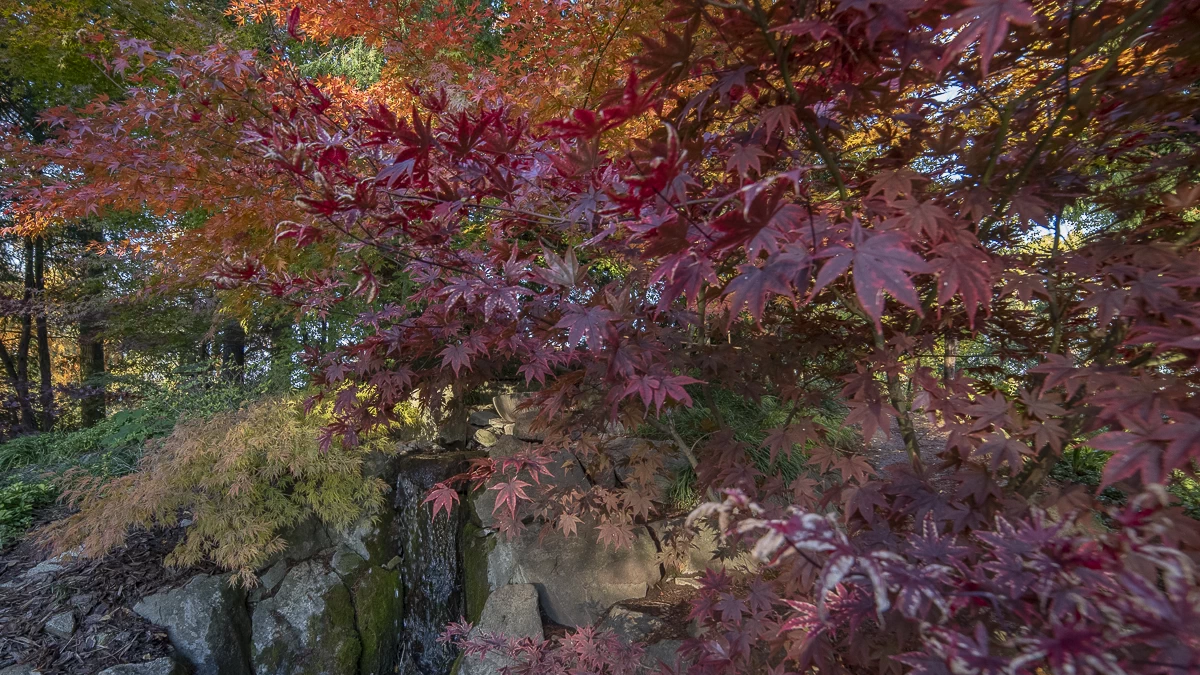The University of Szeged Botanical Garden invites guests to welcome the vibrant hues of autumn during its celebration of Momiji, the traditional Japanese event dedicated to the beauty of changing leaves.
In Japan, Momiji marks the moment when the mountain god paints the foliage red, and people visit scenic spots to admire this transformation. In Szeged’s Japanese Garden, the maple trees put on a similarly stunning show each fall. From early October, their foliage shifts through countless shades of red and yellow, enveloping the landscape in magical colours by mid-November.
The Japanese maple (Acer palmatum) is one of the garden’s signature species. Known in Hungary simply as the Japanese maple, this ornamental tree is beloved for its elegant form and striking autumn palette. Cultivated in many varieties—from light yellow to pale green, burgundy-edged, or deep wine-coloured leaves—it is also commonly trained as bonsai. Its palm-shaped leaves, which can have five, seven, or nine slender ‘fingers’, often turn dramatically from green to crimson as the season progresses, standing out vividly against greener surroundings.
Beyond its beauty, the Japanese maple holds deep symbolic meaning in Japanese culture, representing peace, silence, and respectful harmony between humans and nature. It appears widely in temple gardens and traditional artworks.
Saturday’s event aims to bring the spirit of Momiji closer to Hungarian visitors, offering both botanical insights and cultural experiences. Curator Tamás Gál will lead guided tours of the Japanese Garden throughout the day.
Inside the Mediterranean greenhouse, talks will introduce the customs of the autumn festival, including elements of samurai heritage and the traditional bamboo flute, the shakuhachi—performed live by Virág Bartucz. Near the lotus lake, a bonsai demonstration will take place, while the main building will host workshops on Japanese calligraphy and origami.
In the afternoon, guests can learn about the art of Japanese tea preparation. The programme will conclude at sunset with a light-juggling performance inspired by the spirit of Momiji.
Related articles:







